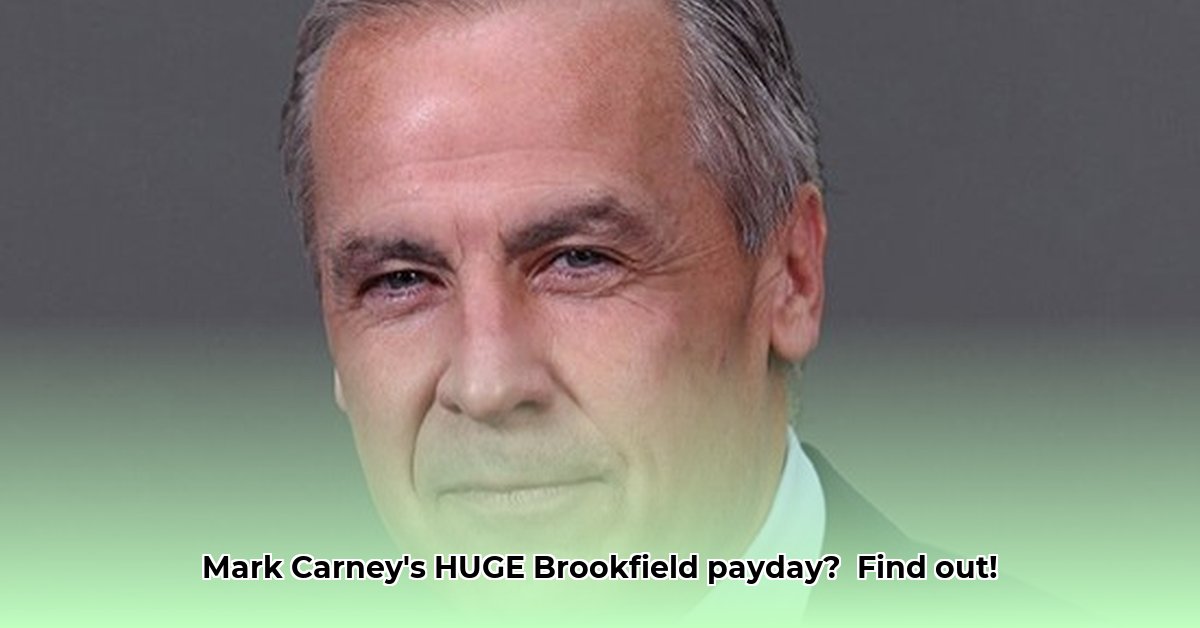
The $6.8 Million Question: Unanswered Queries Surround Carney's Brookfield Compensation
Mark Carney's transition from the helm of Brookfield Asset Management to the Prime Minister's office in Canada has ignited a firestorm of debate surrounding his financial disclosures. The central issue revolves around unexercised Brookfield stock options valued at $6.8 million USD as of late 2024, now held within a blind trust. While Carney maintains compliance with all applicable regulations, the lack of transparency regarding the full extent of his Brookfield compensation – encompassing salary, bonuses, and other benefits – has fueled concerns about potential conflicts of interest. This lack of detail raises critical questions regarding the adequacy of current regulations and the overall public perception of transparency in Canadian politics. Does the current system effectively safeguard against potential conflicts, or does it inadvertently create a gap in accountability? For more detail on his past compensation, see Carney's Brookfield Salary.
The Enigma of the Blind Trust: Protecting or Obscuring?
The concept of a blind trust is designed to mitigate conflicts of interest by shielding a public official's financial dealings from their decision-making processes. A trustee manages the assets, concealing their precise nature from the official. However, the Canadian system's effectiveness remains a subject of considerable debate. The lack of publicly available specifics regarding Prime Minister Carney's blind trust arrangement exacerbates these concerns. How robust is the oversight mechanism? Who is responsible for ensuring the trustee acts ethically and without bias? These questions, unanswered, contribute significantly to public distrust. A rhetorical question arises: how can Canadians have complete confidence in their leader's integrity when crucial financial details remain undisclosed? The current system, even if technically compliant, might not be sufficient in practice.
Brookfield's Extensive Portfolio: A Potential Conflict of Interest?
Brookfield Asset Management, a global investment giant, holds significant stakes across diverse sectors including energy, infrastructure, and environmental projects – areas directly relevant to governmental policy. This expansive portfolio raises legitimate questions about potential conflicts of interest. Could governmental decisions, even inadvertently, favor Brookfield's interests, potentially at the expense of public good? The lack of complete transparency surrounding Mr. Carney’s departure from Brookfield—specifically, the manner in which his stock options were handled—further compounds these concerns. Did he retain any options, or were they fully relinquished? The absence of detailed information hinders an objective assessment of any potential conflict. A quantifiable fact underscores the gravity of the situation: the significant financial stake in a company with extensive government-related interests demands extraordinary levels of transparency to maintain public trust.
Erosion of Public Trust: A Crisis of Confidence?
The opacity surrounding Mr. Carney's financial affairs has profoundly eroded public trust. The lack of complete disclosure fuels public skepticism, particularly as a federal election approaches. This mistrust is not merely anecdotal; polls consistently reveal significant public concern about the transparency of political leaders' financial dealings. Professor Anya Schiffrin, Director of the Journalism program at Columbia University, observes, "Public trust is the cornerstone of a healthy democracy, and when public figures fail to maintain transparency, it erodes public confidence in the political system." This sentiment resonates strongly within the current Canadian political context.
Toward Greater Transparency: A Roadmap for Reform
Restoring public trust requires decisive action. Addressing the concerns surrounding Mr. Carney's compensation demands a multi-pronged approach:
Complete Financial Disclosure: Prime Minister Carney must publicly release comprehensive details of his Brookfield compensation package, including salary, bonuses, stock options, and any other benefits received. Vague statements are insufficient; comprehensive data is essential.
Enhanced Blind Trust Oversight: Parliament must review and strengthen regulations surrounding blind trusts, ensuring robust independent oversight and increased transparency regarding their contents.
Strengthened Ethics Regulations: Canada's ethics rules for political leaders require substantial reform, mandating more rigorous financial disclosures and stricter conflict-of-interest guidelines. A higher standard of transparency is paramount.
Corporate Accountability: Brookfield should conduct a comprehensive review of its executive compensation and departure policies, implementing clearer guidelines to prevent similar situations arising in the future.
The current situation serves as a crucial wake-up call for Canada. The potential for conflict, even if unintentional, necessitates immediate action to rebuild public faith in governmental transparency and the integrity of its leaders. Further investigation into Mr. Carney's case, and similar instances, is vital to ensuring this issue is definitively addressed. The future stability of Canada's political landscape hinges on a commitment to open and accountable governance.